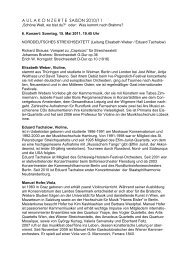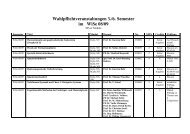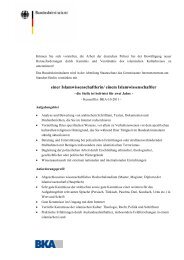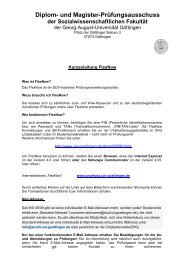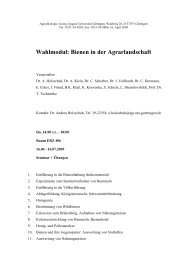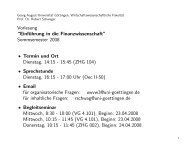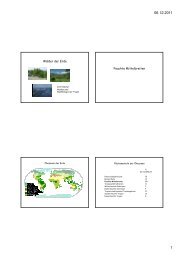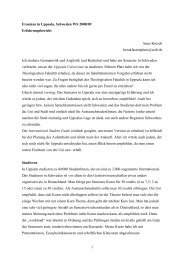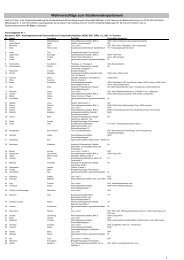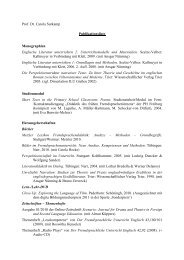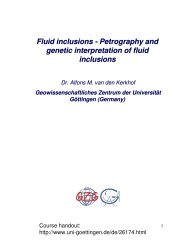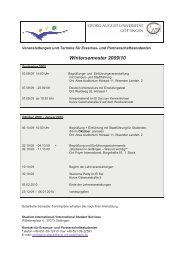The OMC inclusion and national social NGOs: From enthusiasm to ...
The OMC inclusion and national social NGOs: From enthusiasm to ...
The OMC inclusion and national social NGOs: From enthusiasm to ...
You also want an ePaper? Increase the reach of your titles
YUMPU automatically turns print PDFs into web optimized ePapers that Google loves.
1. Introduction<strong>From</strong> the first anti-poverty programme in the 1970s over the discussion about the European<strong>social</strong> model in the 1980s <strong>and</strong> 1990s <strong>to</strong> the introduction of the Open Method of Coordination(<strong>OMC</strong>) <strong>inclusion</strong>, the <strong>social</strong> dimension of the EU has remarkably advanced, even though itstill lags far behind the degree of economic <strong>and</strong> financial integration (Scharpf 1996) <strong>and</strong> mostprobably will continue <strong>to</strong> do so in the future due <strong>to</strong> strong <strong>national</strong> political resistance againstfurther harmonization in the field of <strong>social</strong> policy. <strong>NGOs</strong> did particularly benefit from thedifferent anti-poverty programmes as these <strong>and</strong> the support of the European Commission(hereafter Commission) led <strong>to</strong> the creation of the European Anti-Poverty Network (EAPN) in1990 which since became an important political lobbying organisation <strong>and</strong> informationprovider at EU-level (Halvorsen <strong>and</strong> Johansson 2005), gathering some 21 <strong>national</strong> povertynetworks as well as additional 26 European associations.What about <strong>national</strong> <strong>social</strong> <strong>NGOs</strong>, however? Where they capable of using the institutionbuildingat EU-level (de la Porte 2005) so as <strong>to</strong> increase their impact on domestic policydevelopment? This is the question that the present paper will address. More concretely, itaddresses the question how <strong>national</strong> <strong>social</strong> <strong>NGOs</strong> have reacted <strong>to</strong> <strong>and</strong> dealt with the <strong>OMC</strong><strong>inclusion</strong> (2001-2005) <strong>and</strong> whether its framework has allowed them <strong>to</strong> increase their impac<strong>to</strong>n <strong>national</strong> policy-making. National <strong>social</strong> <strong>NGOs</strong> have been chosen as the <strong>OMC</strong> <strong>inclusion</strong>clearly is an intergovernmental instrument. <strong>The</strong> realisation of its high ambitions, due <strong>to</strong> itsnon-bindingness, completely depends upon member states’ will <strong>to</strong> implement it. <strong>The</strong>refore,the success or failure of this <strong>OMC</strong> must mainly be researched <strong>and</strong> evaluated at domestic level.In order <strong>to</strong> address this question, I am particularly relying on semi-structuredinterviews that I have conducted in France <strong>and</strong> Germany between January 2004 <strong>and</strong>September 2005 1 . Furthermore, I have conducted semi-structured interviews with officialsfrom the Commission <strong>and</strong> several delegates both <strong>to</strong> the Social Protection Committee (7) <strong>and</strong><strong>to</strong> its Indica<strong>to</strong>r-Sub Group (6), the political <strong>and</strong> technical steering committees of this <strong>OMC</strong> aswell as 40 people who participated in the supportive peer review programme. Additionally,official statements from <strong>NGOs</strong> as well as governmental plans have been taken in<strong>to</strong>1 For France, I am drawing on 12 in-depth interviews with involved ac<strong>to</strong>rs that I conducted between January2004 <strong>and</strong> September 2005, four of which with the concerned administrations, two with a Sénateur which is at thesame time the president of the CNLE (see further down) <strong>and</strong> seven with representatives of the main <strong>NGOs</strong>,partly having leading functions within the French <strong>and</strong> European branches of the European Anti-Poverty Network(EAPN). For the German case, I am drawing on 19 in-depth interviews (three on the federal level, six on theregional level, two on the local level, six of <strong>national</strong> <strong>NGOs</strong> <strong>and</strong> two with involved researchers). <strong>The</strong> interviewswere conducted between May <strong>and</strong> November 2005.



